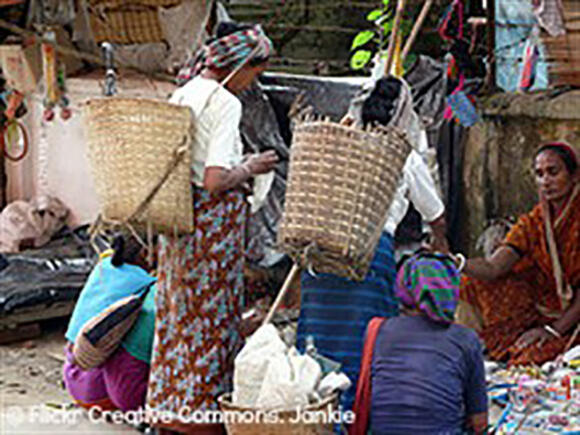
LSTM’s Seminar Series continued this week with a presentation by Dr Jahangir AM Khan, a senior lecturer in health economics at LSTM and an adjunct researcher at the Karolinska Institutet, Stockholm and associate professor of James P Grant School of Public Health, BRAC University, Dhaka, Bangladesh.
He is the former head of health economics at icddr,b, Dhaka, Bangladesh. The second part of the presentation was by Sayem Ahmed, an icddr,b research investigator and a health economist and statistician at its Centre for Equity & Health Systems. The seminar was organized through CAHRD, LSTM’s Centre for Applied Health Research and Delivery. The talk on Rising health needs, catastrophic expenditure, and poverty – challenges and solutions for universal health coverage in Bangladesh, was introduced by LSTM’s Chair of Health Economics Professor Louis Niessen.
Dr Khan explained the principle of universal health coverage (UHC) as access for all to appropriate health care when needed at an affordable price. He listed three dimensions of increased coverage: expansion of financing mechanisms to cover for health care cost, expansion of service access, and the increase of the populations covered.
He described the rapid changes in Bangladesh between 2000 and 2012-2013 in population growth and increases in urbanisation and health expenditures, in real terms as amount of money spent on health per capita. However, based on year 2012 sample data, a 63% of health expenditure is from household out-of-pocket payments. This is obviously a real issue as large and unpredictable health payments may expose households to financial risk, often in resulting in impoverishment. Protecting households from catastrophic healthcare expenditure is one of the most desirable objectives of health systems worldwide.
Dr Khan and Sayem Ahmed, research investigator went on to present more icddr,b research explaining that the major objectives were to explore the draw-backs of current healthcare financing mechanism in Bangladesh towards UHC and to identify the opportunities for meeting challengers of healthcare financing towards UHC. He presented findings and the listed some limitations regarding the national sample household survey, in particular that poor household who could not seek care could not be included. The study found that out of pocket health expenses annually pushed a 3.5% or five million people of Bangladesh below the poverty line and that those in poorer households were likely to have to borrow money and to sell assets to make health care payments. Sayem Ahmed presented the findings on the impact of Grand Challenge Canada funded community-based health insurance scheme on accessing qualified healthcare providers and estimated their impact on out of pocket payments. The researchers found that healthcare seeking from qualified providers was 1.75 times higher among those on the scheme while out of pocket payments were 38% lower for such care.
These new findings for Bangladesh provide an informative and positive basis for policy makers in to promote insurance options including the informal workers, while advocating UHC. Other members of the research group were Abdur Razzaque Sarker, Dr. Marufa Sultana, Mohammad Hafizur Rahman, Sanchita Chakravorty, Dr. Timothy G Evans, Wahid Ahmed and Dr Ziaul Islam. Dr. Khan and his colleague will present their findings at Karolinska Institute, Stockholm.